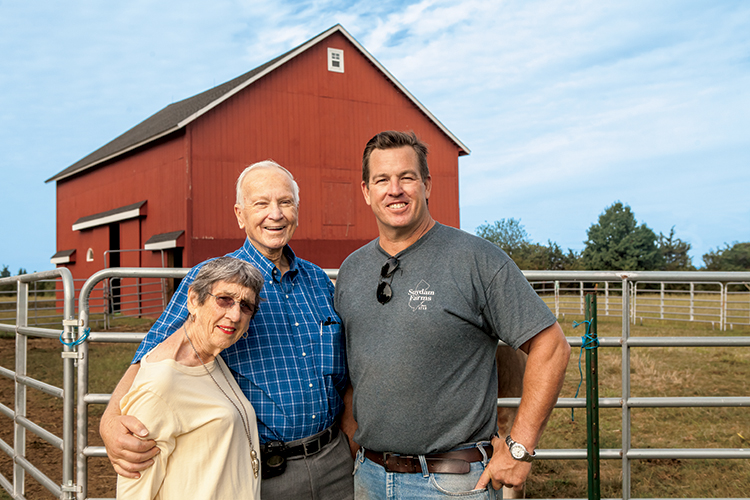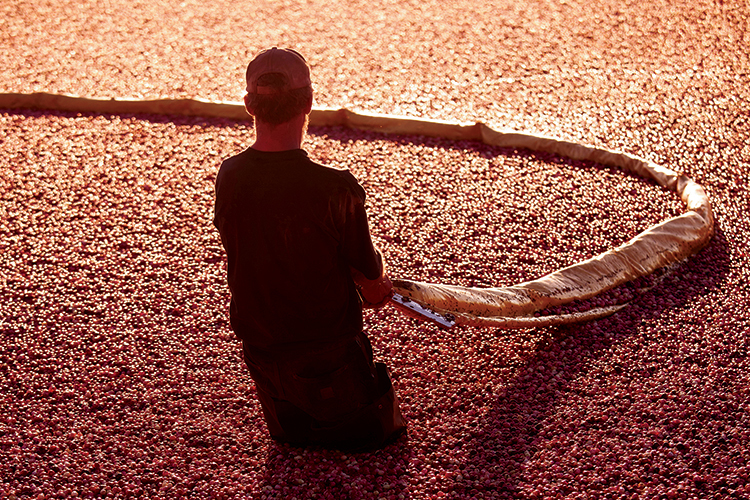Home > New Jersey > New Jersey Farm to Table > Farming Tradition in New Jersey
Farming Tradition in New Jersey

In the world of business, multiple generations of ownership proves rare. Just 3 percent of family businesses operate at the fourth-generation level or beyond, the Family Business Institute reports.
Yet, Ryck Suydam and his family have created their own statistic in Somerset, where the 13th generation now works on the family farm.
Over time, Suydam Farms has evolved. Today, field crops and hay production for horses provide the primary income.
The family also markets vegetables, fruits, flowers, Christmas trees, pigs and lambs to their immediate neighbors.
Without a doubt, innovations and technological advancements in the industry have impacted the family business dramatically since 1713. In hay alone, recent advancements in tractors and handling equipment have reduced the work of five men to just two, Suydam says.
Over the years, the Suydams have adopted drip irrigation for vegetables. The family taps into a lineup of more effective fertilizers, herbicides and fungicides for hay and field crop production. Even computers and software technology have improved the business.
Planning For Transition
Yet the farm’s transition plan proves as important.
“My grandparents and parents put the wheels in motion to give me the opportunity. That’s crucial,” he says. “Transferring the farm to the next generation takes a lot of planning to minimize tax impacts and other issues.”
That commitment to planning for the future is evident for the Lee family as well. The current fifth and sixth generations tend to the Lee family farm with their children in mind. But the next generation will not simply walk into the cranberry business.
“We’d like to have them move off the farm and do something else, and then come back later on a full-time basis,” says Stephen V. Lee IV, the sixth generation at Lee Brothers Inc., a cranberry farm since 1868. “It gives you an opportunity to be able to explore and see what else is out there.”
Lee once worked in the hotel industry. His dad flew as an Air Force pilot.
Focused On Cranberry Innovation
Now together on the farm, generations of the Lee family have implemented innovative strategies to improve the business.
The family developed the first ride-on machine to increase the harvest swath. They became early adopters of an aluminum machine, a lighter one that uses vegetable oil in the hydraulic system.
Today, they have developed an automation system to monitor environmental conditions and control irrigation pumps. Essentially, a mini weather station integrates temperature and soil moisture monitoring with pump controls for smarter water usage.
“We’re looking at preserving and continuing to grow the farm for the next generation,” Lee says. “The decisions we make are what will be best in the long-term.”
Holding On To Heritage
Among the summer’s tomatoes and cucumbers, Cranford farmer Jessica Dreyer feels her full-circle moment: Her passion to grow and sell fresh produce reconnects her with her grandmother’s farm stand from the 1940s.
Dreyer just adds a modern twist. The family’s Community Supported Agriculture (CSA), or produce-share arrangement, includes about 1,200 members.
Dreyer Farms sells products from a new building that showcases their diversity, which caters to the suburban customer base that surrounds them.
“With every generation comes a new angle and a new direction,” says Dreyer, the farm’s fourth generation. “We are not turning our back on the past, but incorporating it into the future.”
That’s a must for Dreyer Farms, the last working vegetable farm in Union County.
Today, Dreyer, along with her father and uncle, raise and sell trees, shrubs, perennials, bedding plants, fresh fruits and vegetables, farm-grown mums and Christmas trees.
“Family has to get along and work well together,” Dreyer says, reflecting on the farm’s existence since 1904. “Keeping the business going strong has been important – and changing with the times. You can’t have a roadside market around here and pay the bills. We have to diversify and provide what people want.”




